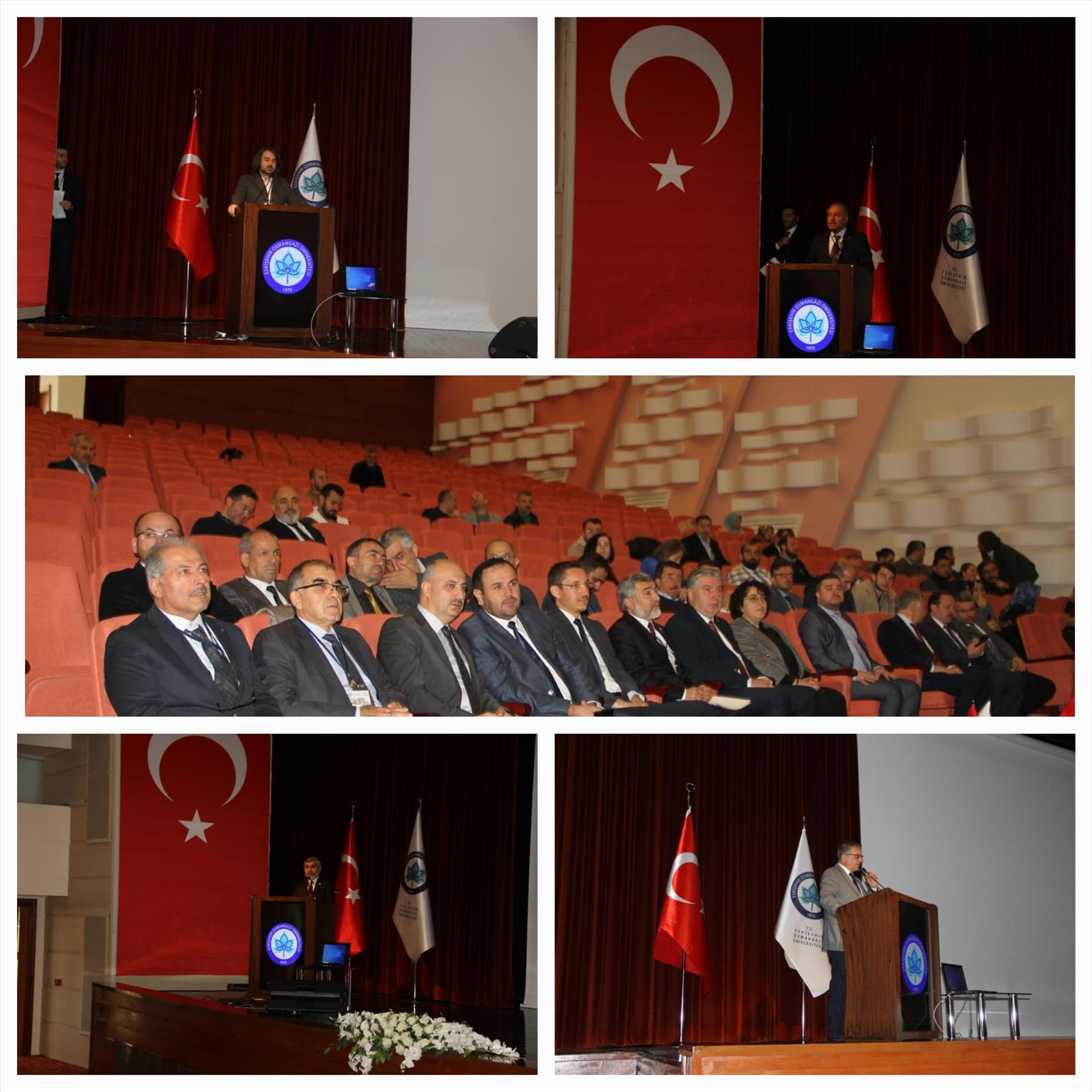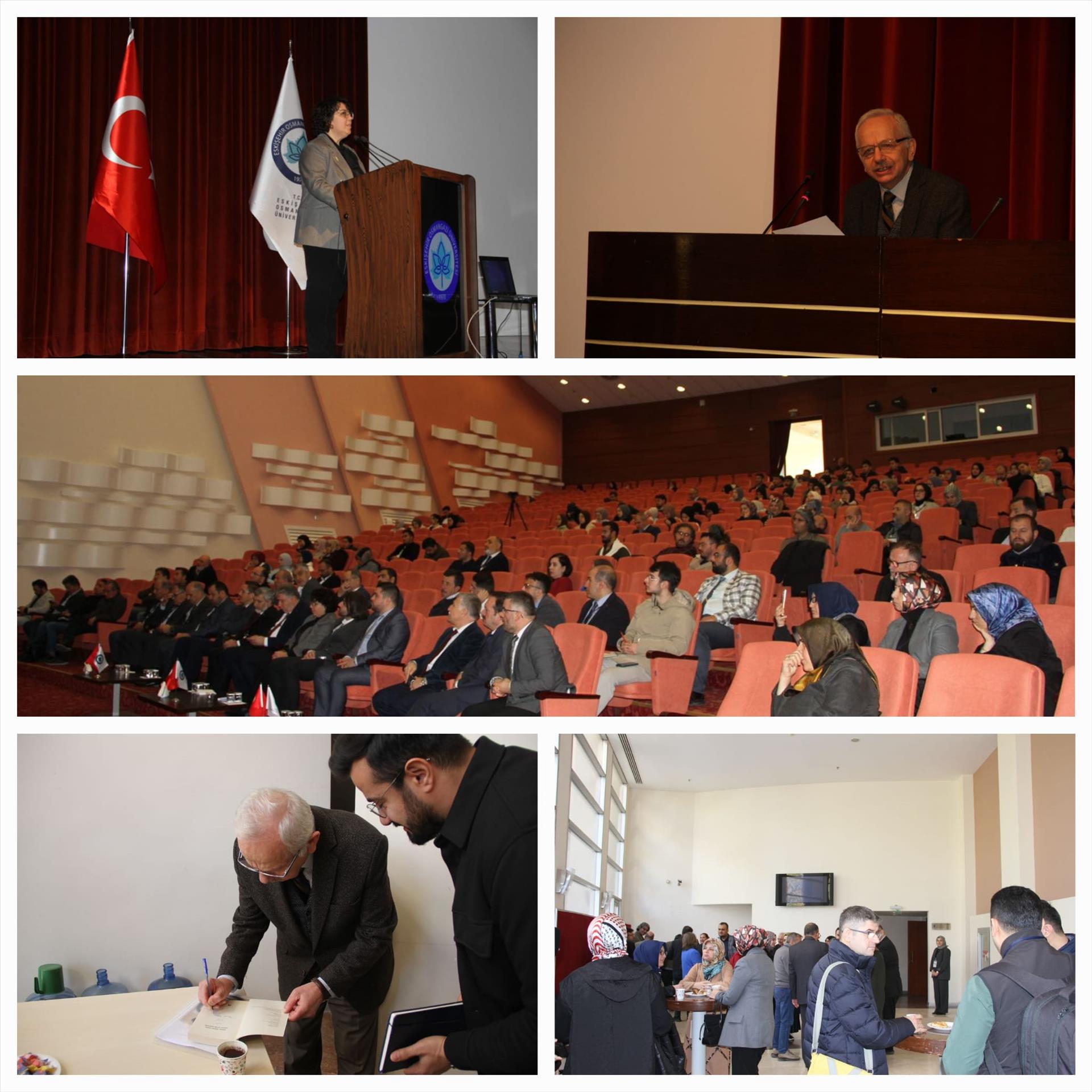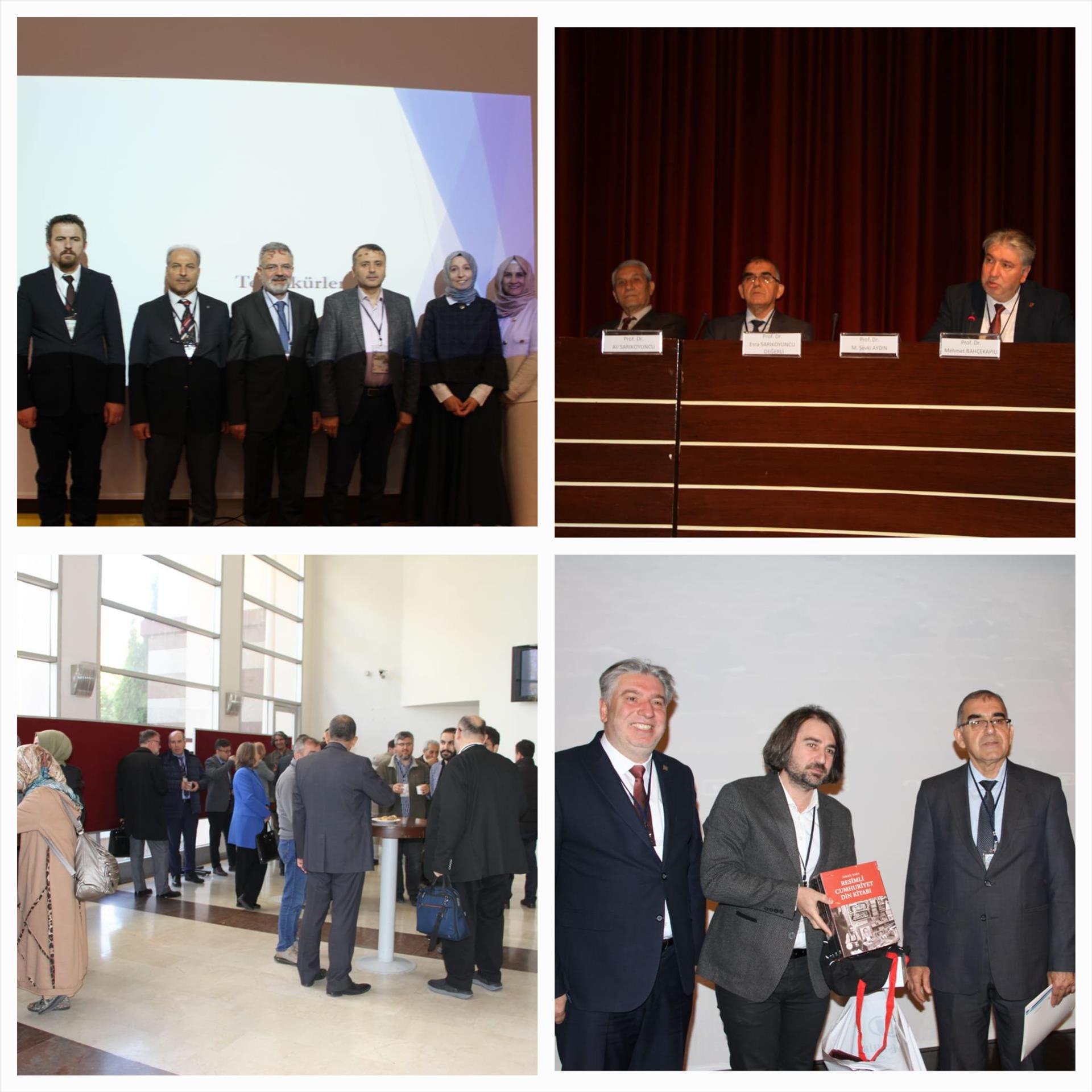


The symposium entitled ‘The Law of Unification of Education and Religious Education’ organised by Eskişehir Osmangazi University on 7-8 November 2024, garnered significant interest from scholars, practitioners, and students. The event commemorating the 100th anniversary of the adoption of The Law of Unification of Education examined many aspects of the law's historical, educational, and social impacts.
The symposium started with the opening ceremony and protocol speeches at 09:00 on Thursday morning, 7 November. Prof. Dr. İsmail Kara, one of the most respected academicians in Türkiye, gave the opening lecture. The conference titled ‘Does Tawhid-i Tedrisat Carry Türkiye?’ attracted great interest from the audience. The opening panel discussed the historical development and scope of the Tawhid-i Tedrisat Law. In the panel moderated by Prof. Dr. Mehmet Bahçekapılı, Prof. Dr. Zeki Salih Zengin, Prof. Dr. M. Şevki Aydın, Prof. Dr. Mustafa Gündüz, and Prof. Dr. Ali Sarıkoyuncu examined the historical effects of the law from a multi-dimensional perspective.
During the first day of the symposium, scientific sessions were held on various topics such as theology and Islamic sciences education, madrasas, and the effects of The Law of Unification of Education on religious education. Academics discussed the changes in the field of education in both the Ottoman and Republican periods based on historical data.
On the second day of the symposium, sessions including ‘The Law of Unification of Education and Other Discussions’, as well as ‘International Perspectives’, proceeded. The event acquired an international dimension by comparisons of similar educational approaches in Finland, England, and other European nations. The symposium concluded with a concluding session featuring speakers: Assoc. Prof. Dr. Ahmet Çakmak, Prof. Dr. Nurullah Altaş, Prof. Dr. Ayşe Zişan Furat, and Prof. Dr. Hasan Meydan. The participants expressed satisfaction with the symposium, during which they thoroughly explored the numerous implications of the Law on Tawhid-i Tedrisat. The organizing committee extended its gratitude to all scholars and participants who attended the symposium, highlighting that such events illuminate our educational history and future. The event established a forum for academic discourse on contemporary concerns in religious education, offering substantial content with participants from several disciplines.





